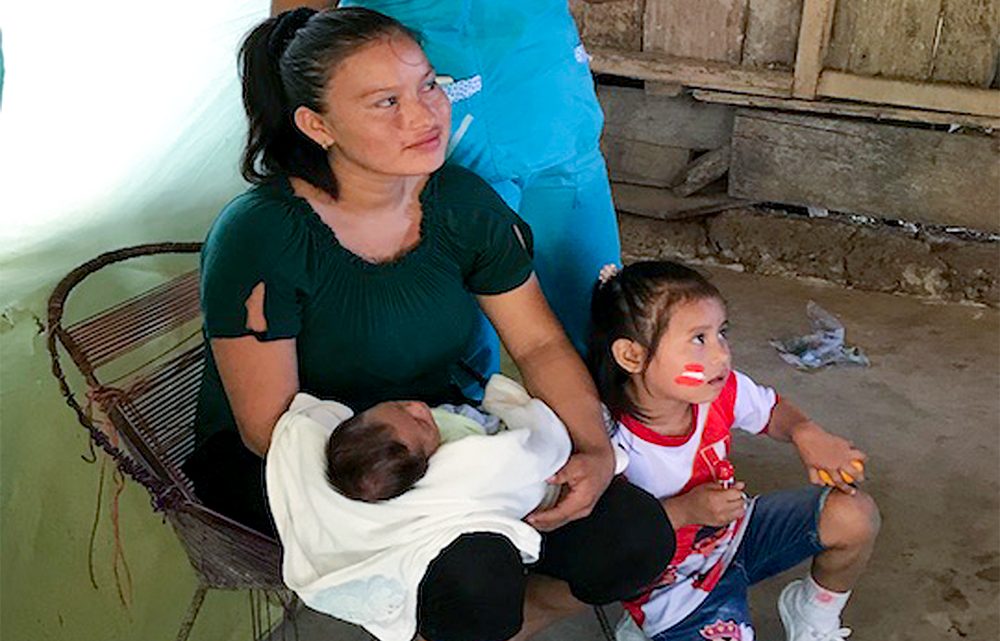In Peru’s most isolated region, the Amazon, people face unique healthcare challenges. Widespread poverty, the remoteness of the area, high cost and long distance of travel, and a shortage of medical workers and supplies have all led to a situation where many people’s basic healthcare needs go unmet.
For more than a decade Avista Adventist Hospital, in collaboration with Centura Health’s Global Health Initiatives, has devoted its resources and staff to making a difference in the region.
“We accomplish a large part of our work through short-term medical mission trips—providing free surgical and primary care services as well as health education,” says Calvin Smith, director of Avista’s surgical services department. For more than five years Smith has led teams of healthcare providers and administrators to Iquitos, the capital of the Peruvian Amazon.
“I’m extremely proud of all the work we do and have seen lives change because of our efforts, but one program that stands out is Helping Babies Breathe,” says Smith. “This education initiative alone has saved hundreds of lives since it began in 2015.”
In villages along the Amazon river, babies are often delivered at home without the supervision of a skilled provider. Helping Babies Breathe is an evidence-based program designed to teach those who attend births how to respond to the early dangers faced by babies in these remote settings.
Using curriculum developed by the World Health Organization, American Academy of Pediatrics and other global health leaders, Avista labor and delivery nurse Michelle Perkins teaches simple breathing intervention techniques that help save lives during the golden minute after birth, and it’s making a difference.
On a recent visit, a GHI team met baby Jose and his mother. Jose was tiny and would still be in the NICU if he was born in the United States. At birth he weighed less than five pounds and had trouble breathing. His mom was frantic with worry—the birth of her daughter two years earlier had been nothing like this.
Thankfully, the attending midwife had Michelle’s training and knew to quickly clear Jose’s airways so he could breathe on his own, saving his life. Baby Jose’s story gives us just a glimpse into the hard work and dedication that’s led to an amazing tally of over 700 toddlers, babies and newborns born along the Peruvian Amazon who are given a chance at life through this education program.
Unprecedented dedication
Greg Hodgson is the founder and executive director of Centura’s Global Health Initiatives and says, “The dedication of Centura Health caregivers is unprecedented, but the work they do wouldn’t be possible without funding, and that’s where we need the community’s help.”
Avista’s team will be traveling once again this September, and with them they’ll be bringing resources to perform the area’s first minimally invasive gynecologic surgeries. You too can aid efforts through donation. Each dollar raised will support programs that deliver health and wellness to the people who need it most.
Search Global Health Initiatives on www.centura.org or Facebook for more information on ways to get involved.
Kirsten Gurmendi is communication advisor for Centura Health Avista Adventist Hospital.








